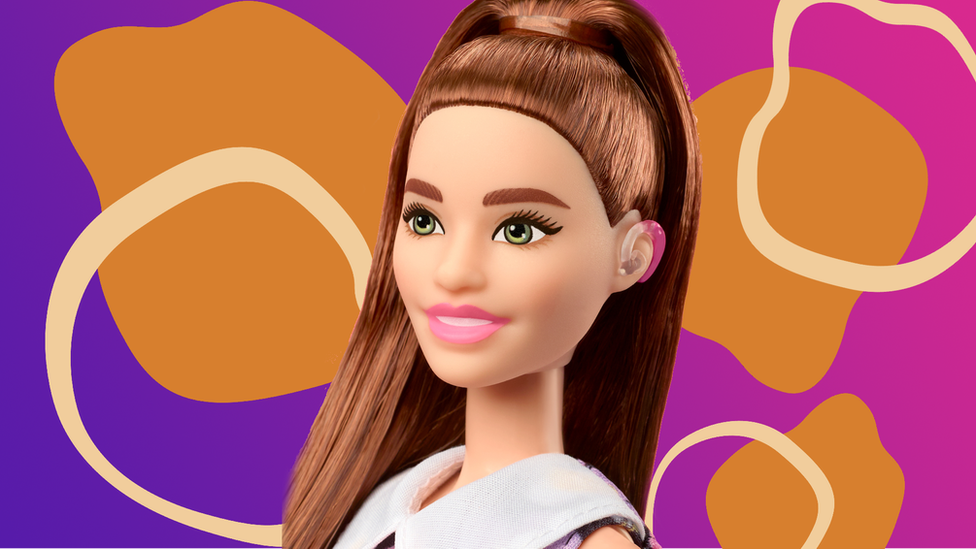Barbie creators have made a doll with scoliosis
- Published
- comments
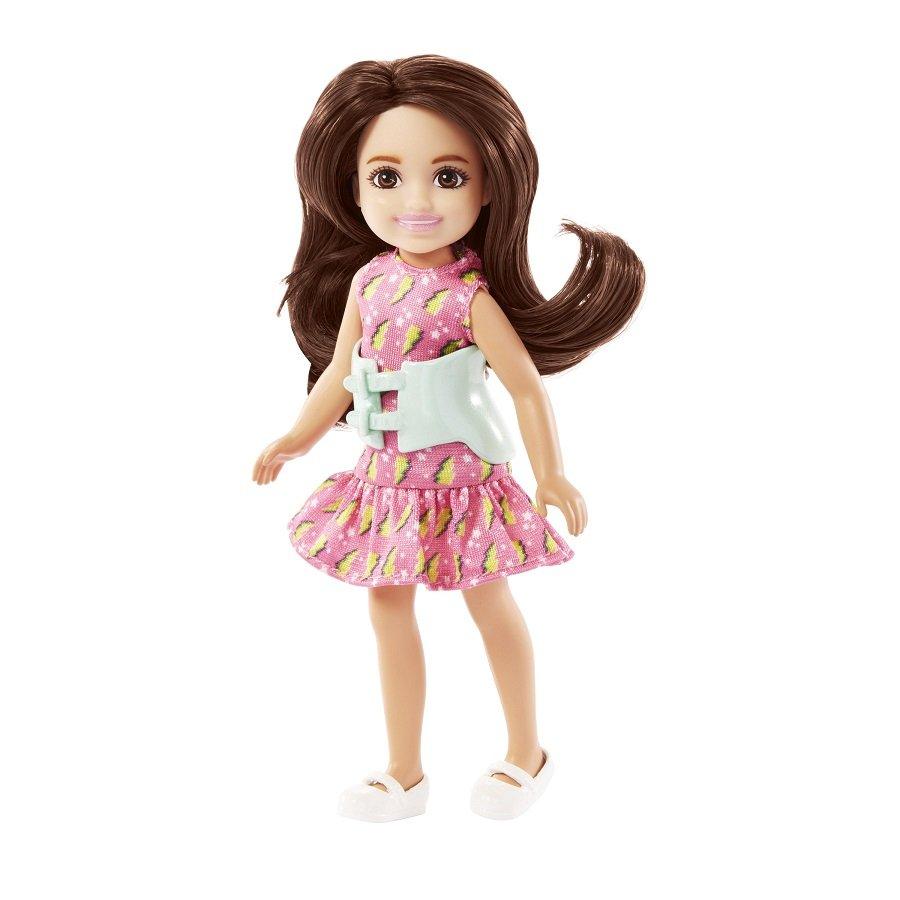
Mattel's new Chelsea doll has a green back brace
The makers of the famous Barbie doll have created their first ever toy with scoliosis.
The toy company's line for Barbie's younger sister Chelsea will soon include a new doll with the spine condition.
Scoliosis is when a person's spine curves or twists to side. This can cause one shoulder to appear higher than the other, or it may be visible in a person's back.
Mattel's new doll, which has brown hair, white shoes and wears a pink dress, has a curved spine and a green removable back brace which many people with scoliosis wear to stop their condition from getting worse.
The toy aims to normalise the equipment used to manage scoliosis and to also encourage children to celebrate diversity and inclusion.
BBC Young Reporter: Tegan's story
How was the doll created?
The team at Mattel worked closely with Dr Luke Macyszyn who is a neurosurgeon and expert in children's complex spinal disorders.
Dr Macyszyn was able to give the designers advice throughout the process of the doll being developed.
"We believe in the power of representation and are committed to creating dolls in a variety of looks so that kids can see themselves in Barbie - and now in a line celebrating Barbie's little sister, Chelsea," said Lisa McKnight who is the executive vice president and global head of Barbie and Dolls at Mattel.
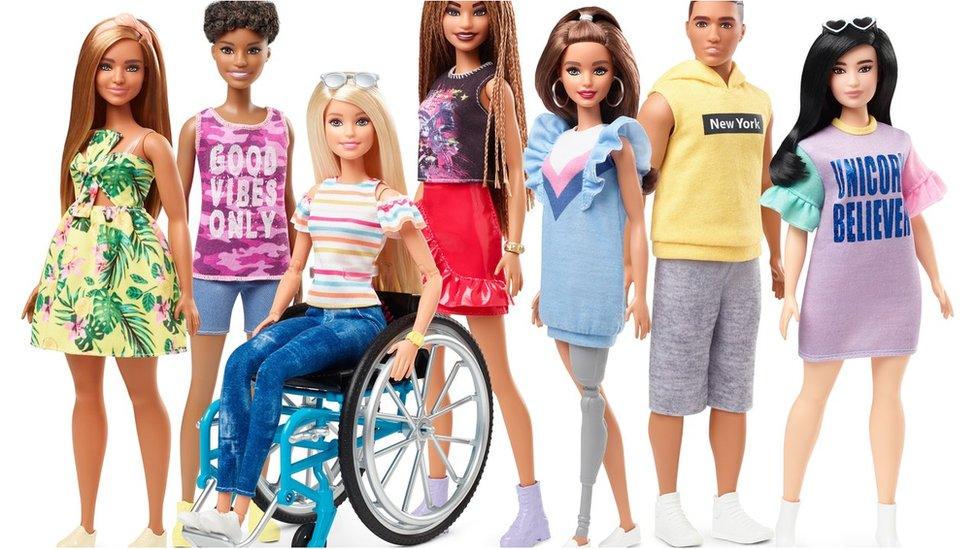
Barbie creators Mattel have introduced a number of other diverse dolls in recent years
"We're proud to launch the first-ever Chelsea doll with a removable back brace to continue to be more reflective of the world kids see around them.
"Our Chelsea line provides infinitely more ways to spark storytelling, all while providing kids with a way to develop their empathy and social processing skills through doll play."
The new Chelsea doll follows other more diverse toys created by Mattel to make their dolls more inclusive and ensure children from lots of different backgrounds feel represented.
Other unique dolls introduced by the company include a Barbie doll with hearing aids, a wheelchair Barbie and a Barbie with a prosthetic leg.
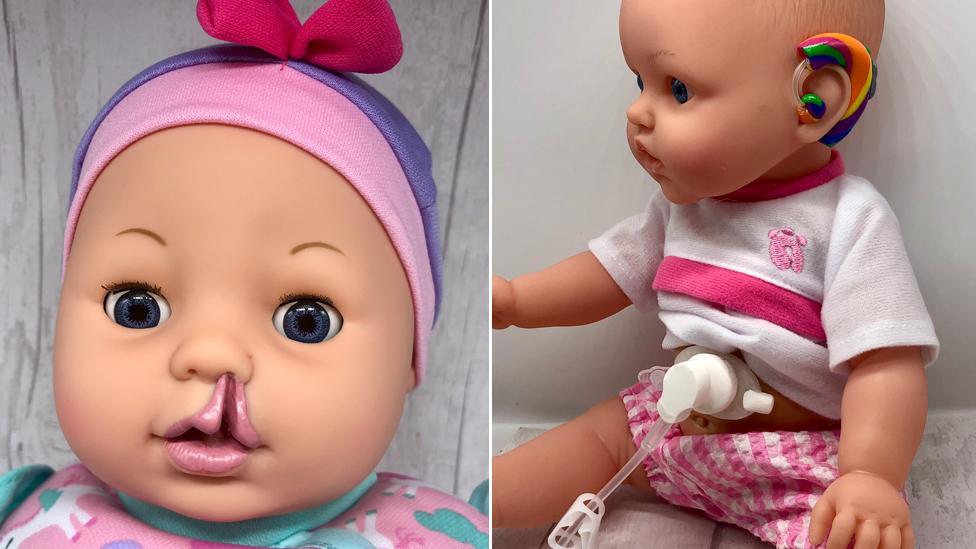
Clare has made a variety of dolls including ones with cleft palates and feeding tubes
However, it's not just Mattel who are introducing more diverse toys for children. One mum decided to create diverse and disability-focused toys inspired by her daughter Amira who is mixed-race and has ADHD and autism.
Another parent who's daughter Matilda was fitted with a hearing aid as a baby made a doll for her as she didn't have a toy she could play with that reflected her disability.
Mum Clare now produces a range of diverse dolls including ones with feeding tubes, cleft palates and even stoma bags.
What do you think of Mattel's latest doll? And what disabilities or conditions would you like to see represented in the toys you see in the shops or play with? Let us know in the comments below.
- Published13 February 2019
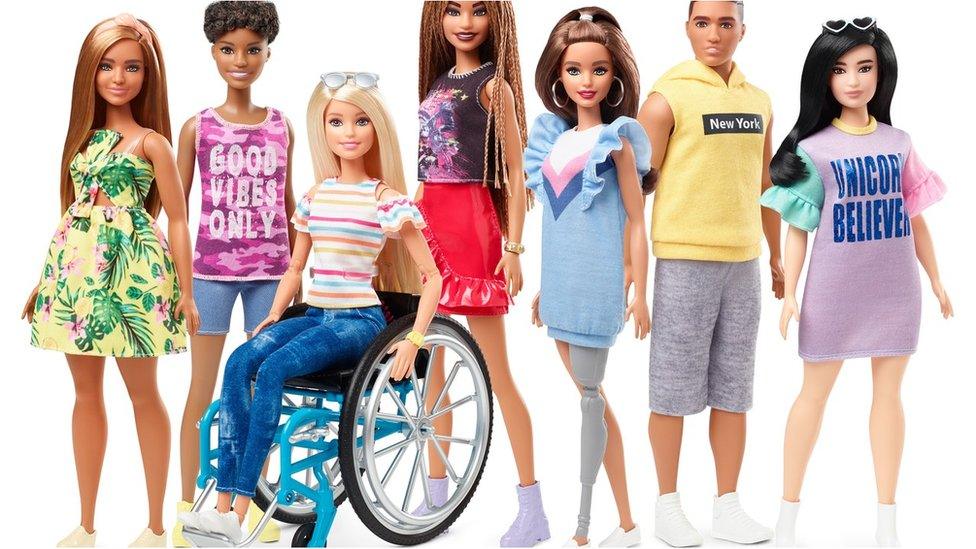
- Published3 August 2020
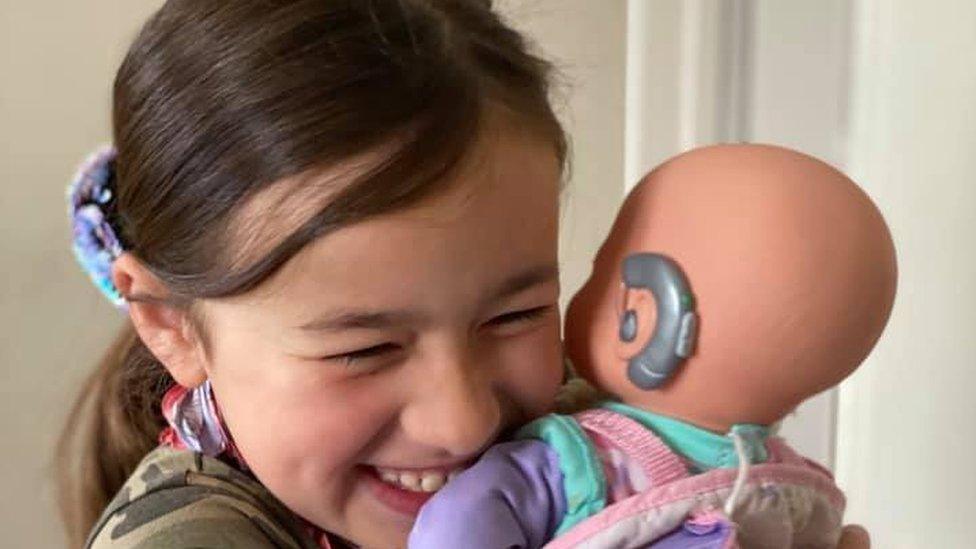
- Published16 May 2022
